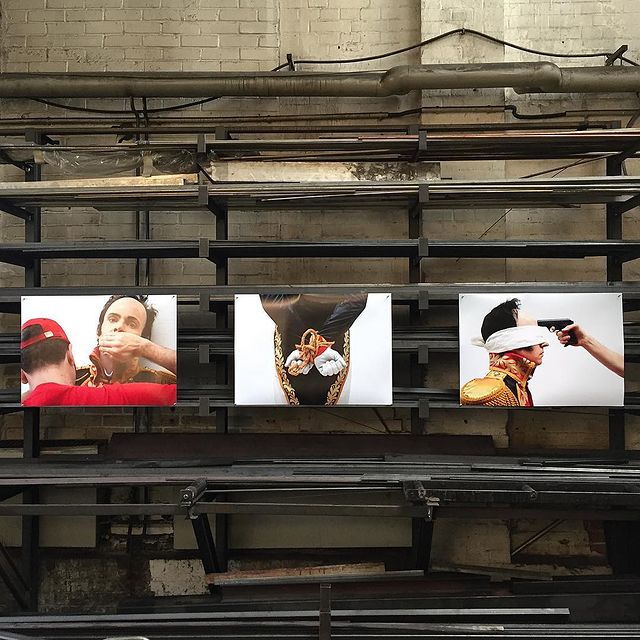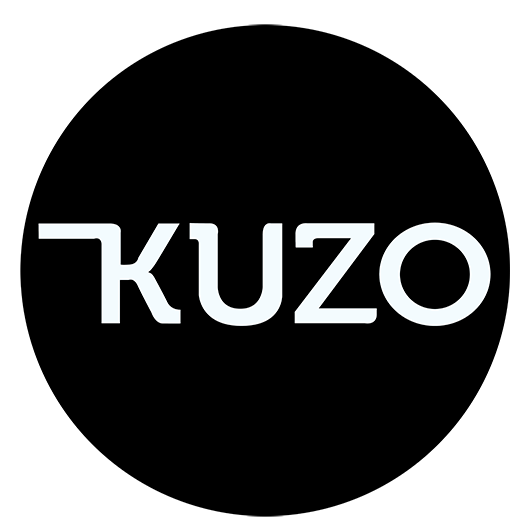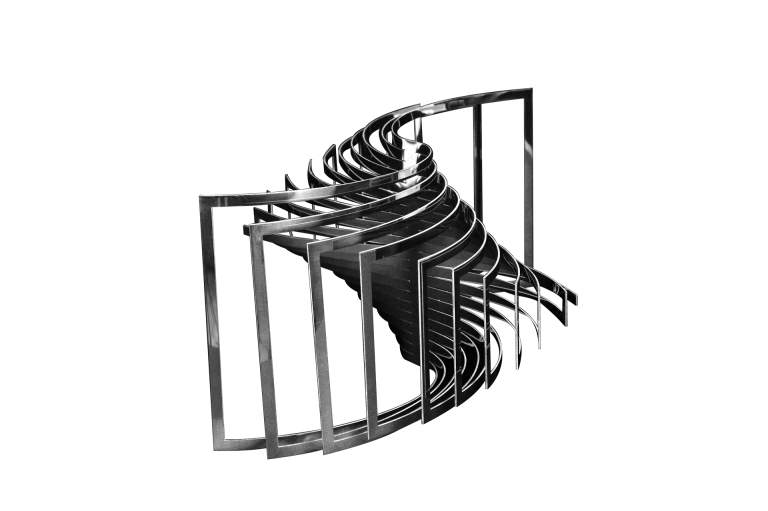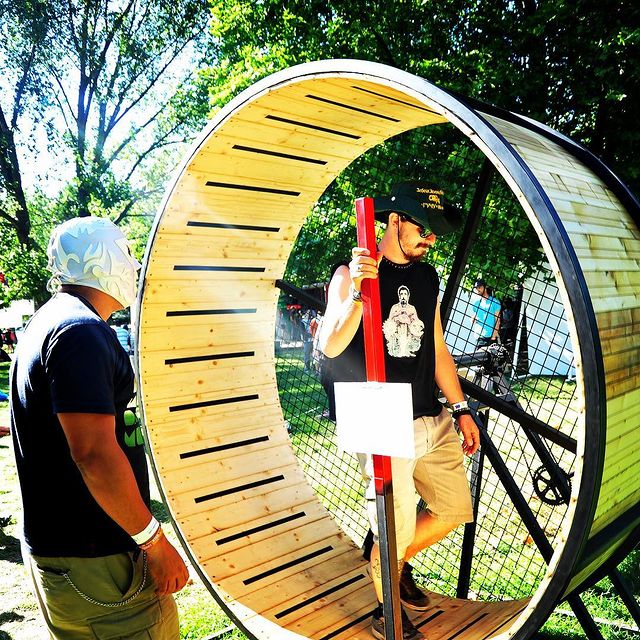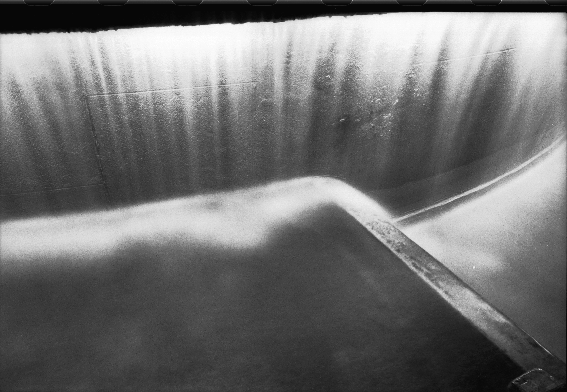Censored-Kidnaped-Threatened (From the “Patria” – Homeland series)
Performance series in the city of Caracas
Triptych, print on photographic paper 84,1 x 59,4 cm. (x3)
2011-2017
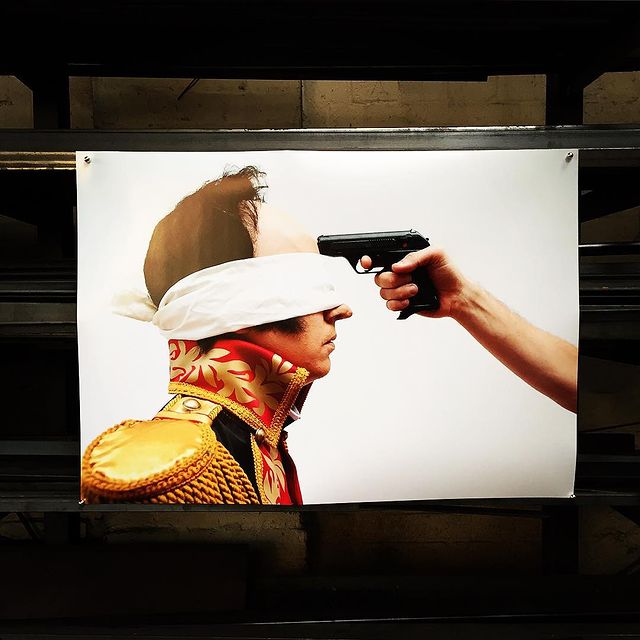
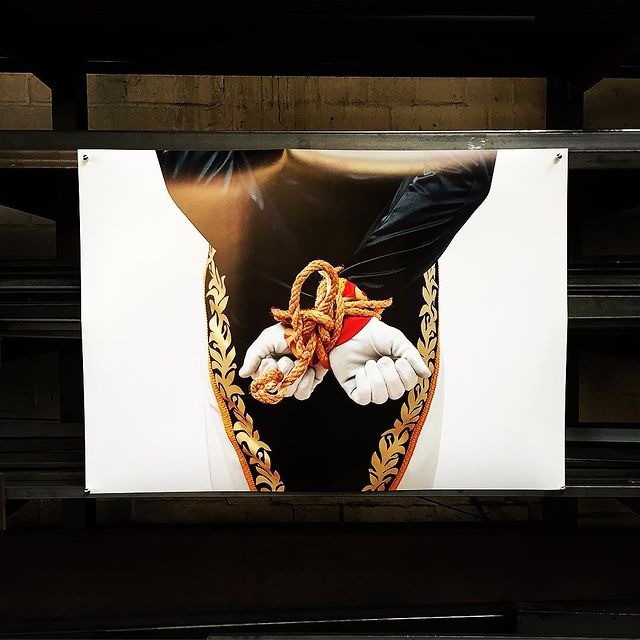
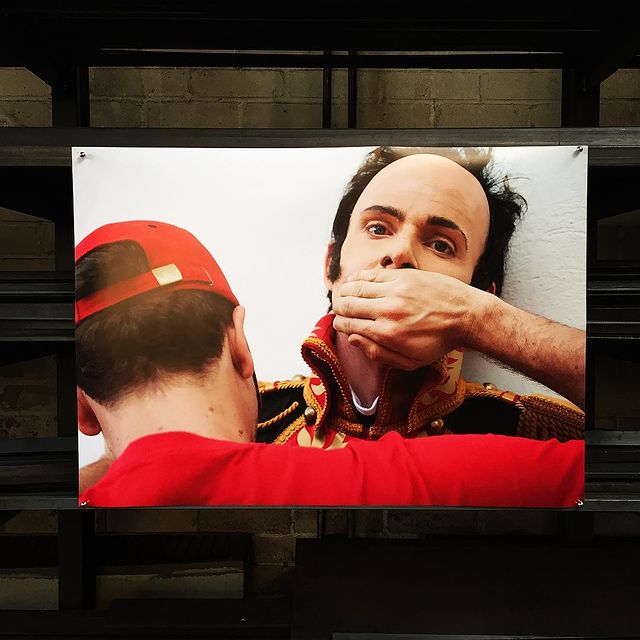
Heroes gagged, handcuffed. Forefathers bowed down by the clamp of fear. That’s what
we all are, today, in Venezuela. “Illustrious Americans”, subjugated by knots of barbarism
and uncertainty, drowned by suffocating muzzles of precariousness. Nobody escapes. Not
even the Liberator of America. Three images of KuZo that are chromos for an album of
dread, three pictures spat from the photo both of terror, acting as identity cards for an
endemic violence inherent to the Venezuelan society. Three passport-type photos, white
background, pale and cruel. An oppressive trilogy represented by KuZo himself in the role
of “the diaphanous man”, as historian José Luis Salcedo-Bastardo called him: a Simón
Bolívar Threatened, Kidnapped and Censored, turned emblematic victim and hostage of
himself by those who, for almost two decades, have hoisted the flagpole of his name and
ideology as a marketing tool for a revolutionary enterprise destined to fail and crumble
away. KuZo incarnates the Liberator, and does so from an aesthetic perspective linked to
the controlled humiliation of hentai and its rigging: ropes, knots, gags, looks, biases. Silent
abuse with a stench of condescension, a half-agreed rape, where the violated one seems
to find refuge in submission as a subterfuge for self-preservation. The idea of the
Homeland under perverse domination; severe bondage for the ultimate symbol. Also
subjugated are the blazons, flags and colors: the yellow of gold, the blood red, the blue of
sky, the neat gloved hands of the gentile-man and the vain glory implicit in the “gules and
or” trimmings, staining at the same time all the puerile innocence contained by definition in
these symbols. KuZo has assembled a set of acrimonious portraits of vexed heroes, for
times that are no longer so heroic.
Portraits that chisel the memory with the iconic pulse of violence, postcards of thuggery,
omnipresent as a telluric vehicle for hatred; three snapshots that show the infamous scars
inflicted by a disproportionate hubris on the leather of our history; the moral and ethical
dismantling of a nation, its fragility as a polysemic organism, susceptible of being debased
through the corruption of its own foundational values. The figure of the wrathful leader,
Father of the Motherland, He, the personification of arrogance, enslaved by the destructive
stultification of his own lost children.
Sergio Márquez
